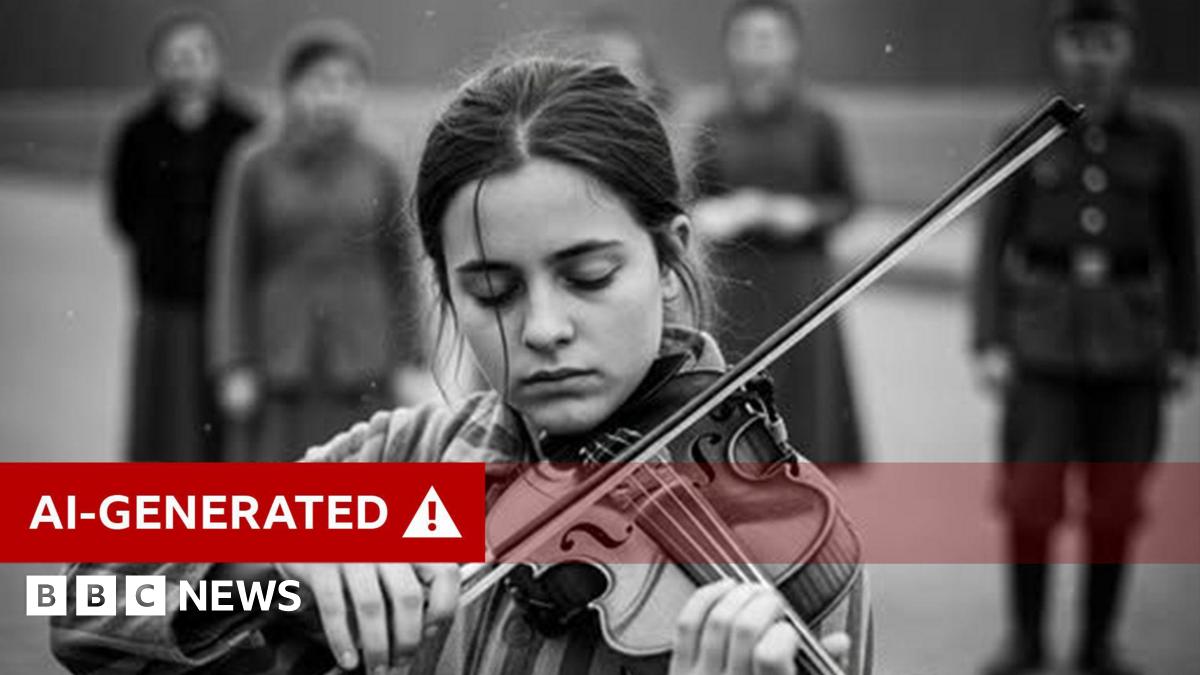To understand why these networks are mass producing specific types of content, the BBC spoke with a Pakistani man Fazal Rahman, who is enrolled in several social media content monetisation schemes and says this work has become his sole source of income.
While he says he does not create any Holocaust images himself, and did not know what the word meant when initially asked, he operates in the same Facebook groups as those who do.
Mr Rahman said a Facebook page with 300,000 followers could earn its owner $1,000 USD a month if it had “premium content” catered to higher-value audiences from the UK, US, and Europe. He estimates Western views were worth eight times more per post than those from Asia.
He said history as a topic was a reliable driver of online traffic.
Other creators appear to agree. The BBC has seen step-by-step instructional videos on how popular AI models could be used to generate continuous fake history images and text.
In one video, the creator asked the AI chatbot to list key historical events they could use as a basis for content creation and was given the Holocaust as one of its answers.
Other advice given by some creators include tips on how to deceive audiences, by having their page impersonate other entities to build audiences and become eligible for Meta’s CM program.
Facebook has a page transparency feature, which allows users to track the previous names of pages. Using this, the BBC found many pages that had posted Holocaust AI slop that once posed as a range of different entities including official firefighting departments in the US, commercial businesses, and American influencers – all without their consent.
These pages, according to creators’ public posts, can also be sold or rented to those looking to break into the content creator market.
